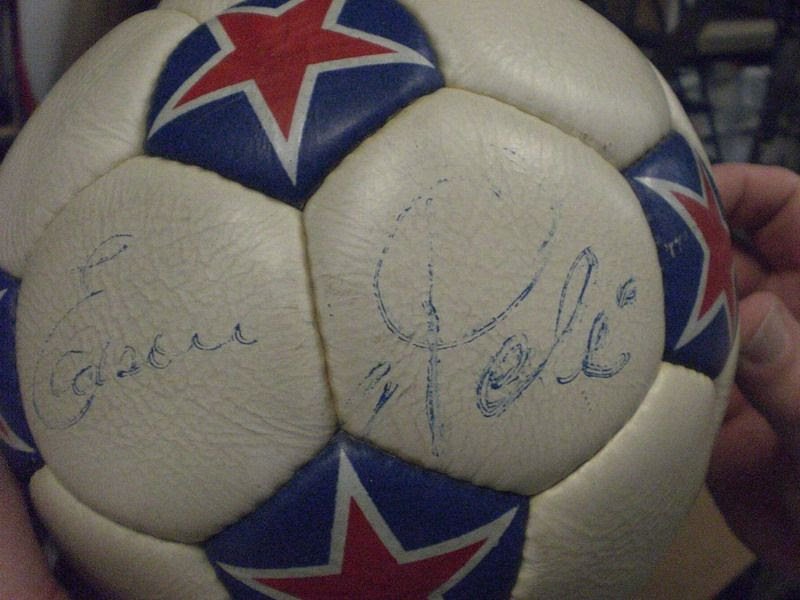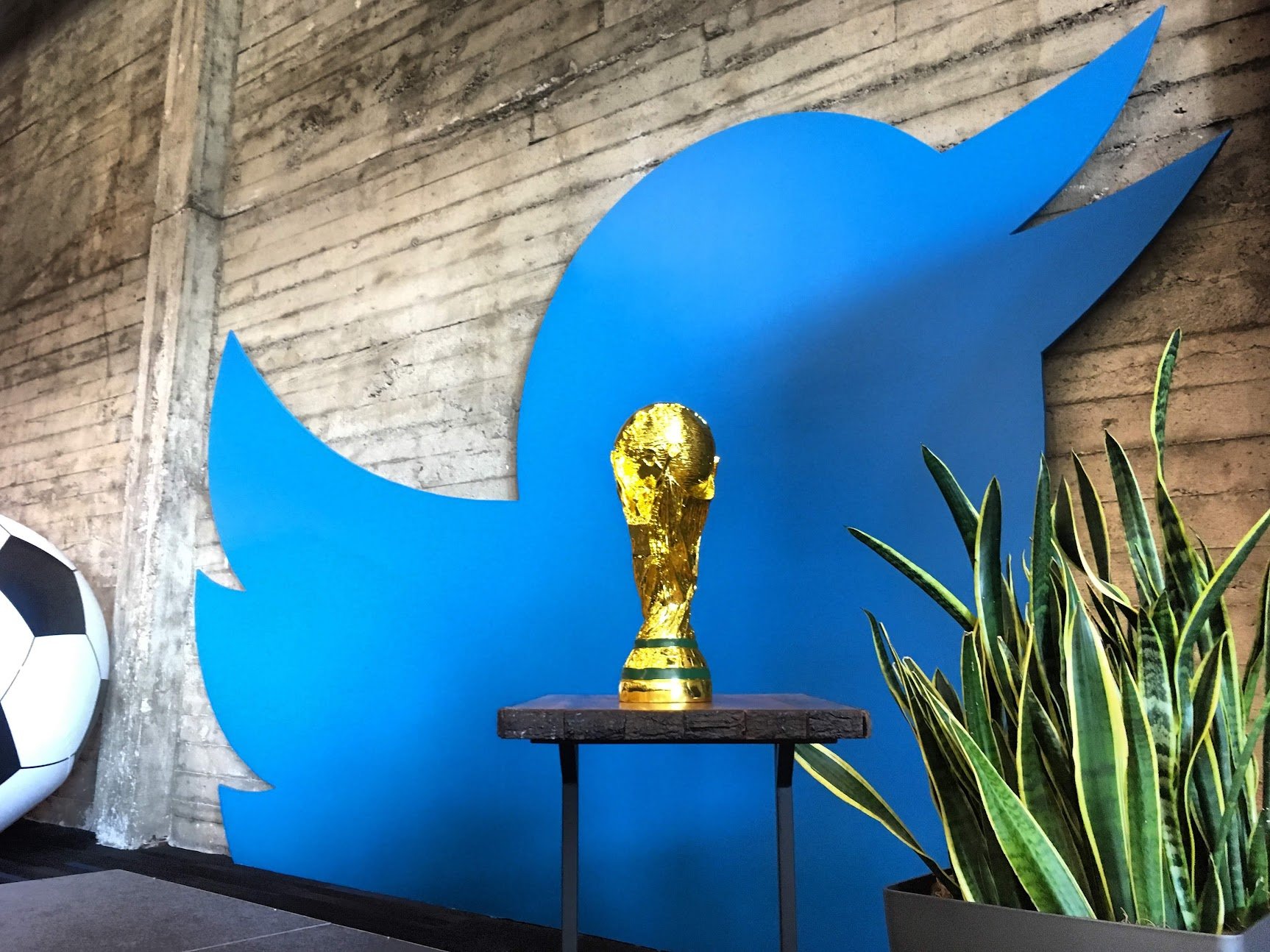Fair warning: I have no idea how long this post is going to be tonight. I have a very ranty idea in my head, and a self-imposed deadline to get this out before midnight, so depending on how quickly the thoughts come, and how much or how little editing I do on these paragraphs, the length and conclusion of this post is, at this point, totally unknown. And, coincidentally, that unpredictability pairs very well with what I want to think out loud about this evening. Strap in, and let’s go for a ride.
See, as you probably know, I’ve been watching the World Cup. I always watch, even in this problematic year. I can’t help it. It is my favorite sporting event. By far. It’s why I have traveled to six of them. The reason I bring it up is because I want to tie it to another one of my passions: politics. And this year, more than most, recent results have shown that we put too much faith in “experts” when really they’re just pundits. And I’ve been wondering why.
Let’s start with The Beautiful Game. This tournament, more than most, has been rife with upsets. And not just little surprises. These are big, foundation-shaking stunners. I mentioned in a previous post about Argentina’s loss to Saudi Arabia. That’s still probably the most monumental one. Since then, however, we’ve seen favorites like Germany, Belgium, and South Korea fall to “underdogs.” I mean Japan surprised Germany, and then gets a proper shock themselves from Costa Rica. This tournament has been bananas.
Next, let’s look at the recent mid-term elections. There are a number of reasons why we’re still trying to figure out how, and who, got so many predictions wrong, but one of the underreported aspects of all the horse-race election coverage is accountability. See, when talking heads tell you what they think is going to happen, and then the exact opposite thing occurs, do we hear from them less? No. And why not? Because they’re not measured by how many predictions they get right. They’re rewarded for how many eyeballs watched them make the call in the first place. We’ve incentivized the attention instead of the accuracy. And that can be said for a lot of the news industry these days.
But if we go deeper and ask why these predictions are so wrong so often, we uncover another flaw in the way our news is presented to us: familiarity. The same people go to the same parties and hear the same stories from the same faces. These get repeated over and over enough to become conventional wisdom. And then we get spoonful after spoonful of it fed to us each election cycle, again and again.
To combat this, though, some outlets partake in mid-western diner tourism, thinking if they find enough anecdotal, contrarian opinions, they’ve presented “both sides” of an argument. What we really need, though, are facts. And we’re just not that good at finding and presenting those in a way where people will actually pay attention. Instead, we get “roundtables.” And “expert opinions.” And polling (for a great look at polls, take a listen to this episode of “Planet Money”). But all of this is just the same handfuls of people talking about what’s familiar to them, with those also familiar to them, rather than really getting out and discovering what they actually know and what they don’t. Then, we wake up the day after election day to “surprises” and “upsets” and “stunners.” While all these uncertain outcomes make these great spectacles, we need to ask ourselves — whether they’re World Cup Matches or election results — why we’re aghast at these outcomes.
If we consider these legitimate upsets, we first have to put faith in the systems we rely on for our conventional wisdom in the first place. And, as we’ve seen over and over vividly illustrated in these last few years, our existing systems have — to put it mildly — some blindspots.
Now, I want to be careful here and not go down the “do your own research” rabbit hole. That’s definitely not what I’m saying. What I’m trying to point out is that there is a place for experts, and there is a place for opinions. But we need to do a better job at separating, scrutinizing, and evaluating them. Let’s go back to The Cup for a moment. When these pre-game talking heads tell you that a team is ranked #1 in the world, do you know what that’s based on? I sure didn’t. And I watch this stuff like my life depends on it. So, what goes into a FIFA World ranking? Well, I “did my own research” and here’s a part of the explanation, according to FIFA themselves:
The points which are added or subtracted are partially determined by the relative strength of the two opponents, including the logical expectation that teams higher in the ranking should fare better against teams lower in the ranking.
The “logical expectation”‽ Whose, the kleptocrats in FIFA; give me a break! As detailed in FIFA’s own documentation, one portion of the points formula is the “expected result of the match” and that expectation is based on the “difference in ratings of the two playing teams”. Let’s break that down for a second: The formula for the ranking includes a variable for the expected winner which is based on … wait for it … the rankings of the two teams playing against each other. That’s like asking the inventor of the pencil what the best writing implement is. It’s turtles all the way down.
To digress a bit, (I know, this entire post feels like a series of digressions, but please hang with me for a bit more) one of the ways people talk about Twitter is to position it as a global town square. I’ve always had trouble with that for a number of reasons, but let’s assume for a moment that it is. Or was (we don’t have time for a digression within a digression). In this global town square, you’re not going to listen to everyone talking all at once. Even if you wanted to, you can’t. So you pick and choose the conversations you want to be part of. You self-select. You start your own. And then, all of a sudden, you’ve gone from being able to be part of any and every conversation on the globe to a select few where you either feel comfortable or confident. Which probably just reaffirms what you already believe. Think about it, how many times was your mind changed based on something you saw in a Tweet? I bet it’s very few. But you definitely Liked and Retweeted the opinions you agreed with, right? Or added an endorsement to those who put your thoughts more eloquently than you ever could. I know I’ve done that. Many times. So maybe because I did it, I assume you did it, too? See, confirmation bias!
We create these bubbles for ourselves, convinced that we know best. But the confirmation bias is moving us to a place where we are placing so much faith in names that we know that we fail to recognize when we actually have no idea about something. Mainly because we want so desperately to believe it ourselves. But that conviction doesn’t make it true, does it? I don’t really have any great solution for this. I wish I did. I guess I just offer some advice: Be as curious as you are skeptical. Including about all you’ve just read here. Almost everything I think I know I learned from a source I trusted. But I’m old enough to understand that what I learned a few years ago may be outdated. Or too myopic. Or just plain misremembered. Experts have their place. As do lived experiences. And if you put enough of those together, you get just enough information to be comfortable. But I’ve never learned anything new from my comfort zone. Here’s to getting a little more uncomfortable.
See you tomorrow?












